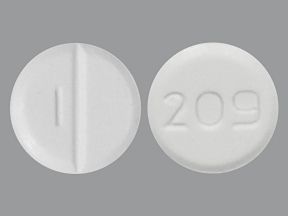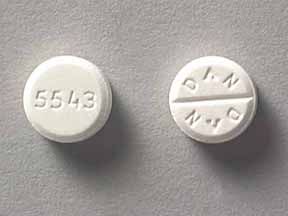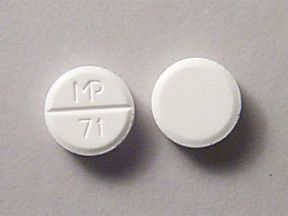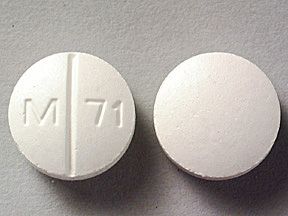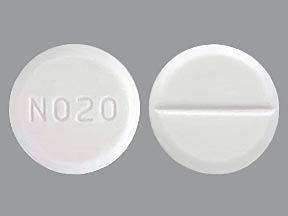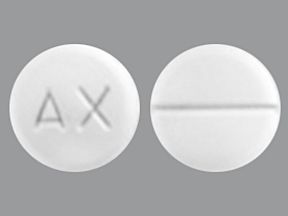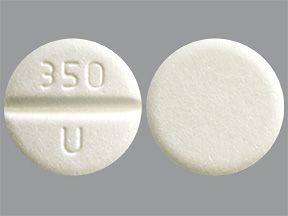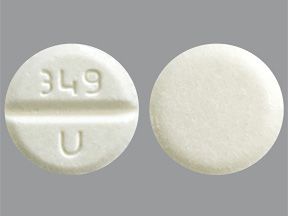Allopurinol oral tablet is a generic prescription drug. It’s FDA-approved to:
- treat a type of arthritis called gout
- manage certain types of kidney stones that come back
- reduce levels of uric acid during the treatment of certain cancers
The drug is approved for use in adults, and rarely, in some children.
Drug details
Allopurinol’s drug classification is a xanthine oxidase inhibitor.
Allopurinol oral tablets are available in two strengths: 100 milligrams (mg) and 300 mg.
Note: Allopurinol is also given as an intravenous (IV) infusion. This article addresses only allopurinol oral tablets. For information on allopurinol’s other form, talk with your doctor or pharmacist.
Brand-name versions
Allopurinol oral tablet is the generic version of the brand-name drug Zyloprim.
The other forms of allopurinol have different brand-name drug versions. For information on those versions, talk with your doctor or pharmacist.
Effectiveness
For information about the effectiveness of allopurinol, see the “Allopurinol oral tablet uses” section below.
Allopurinol oral tablet is a generic drug. A generic drug is an exact copy of the active drug in a brand-name medication. Zyloprim is the brand-name medication that allopurinol is based on. A generic is considered to be as safe and effective as the original drug. Generics tend to cost less than brand-name drugs.
If you’re interested in using Zyloprim instead of allopurinol oral tablets, talk with your doctor. They can tell you if Zyloprim comes in strengths that can be used for your condition. If you have insurance, you’ll also need to check whether your plan will cover Zyloprim.
To learn more about how generics compare with brand-name drugs, see this article.
Allopurinol oral tablets can cause mild and serious side effects. The following lists contain some of the key side effects that may occur while taking allopurinol. These lists do not include all possible side effects.
For more information about the possible side effects of allopurinol, talk with your doctor or pharmacist. They can give you tips on how to deal with any side effects that may be concerning or bothersome.
Note: The Food and Drug Administration (FDA) tracks side effects of drugs it has approved. If you would like to notify the FDA about a side effect you’ve had with allopurinol, you can do so through MedWatch.
Mild side effects
Mild side effects* of allopurinol can include:
- nausea
- diarrhea
- drowsiness
- skin bruising
- fever
- headache
- vomiting
- pain in your abdomen (belly)
- upset stomach
- muscle or joint pain
- peripheral neuropathy (numbness or tingling in your hands or feet)
- nosebleeds
- loss of taste or changes in taste
- acute gout (gout attack)†
Most of these side effects may go away within a few days or a couple of weeks. But if they become more severe or don’t go away, talk with your doctor or pharmacist.
* This is a partial list of mild side effects from allopurinol. To learn about other mild side effects, talk with your doctor or pharmacist, or read allopurinol’s prescribing information.
† For more information about this side effect, see “Side effect details” below.
Serious side effects
Serious side effects from allopurinol oral tablets aren’t common, but they can occur. Call your doctor right away if you have serious side effects. Call 911 or your local emergency number if your symptoms feel life threatening or if you think you’re having a medical emergency.
Serious side effects and their symptoms can include:
- Necrotizing vasculitis (swelling or irritation of your blood vessel walls). Symptoms can include:
- Skin rash.*
- Liver damage.*
- Allergic reaction.*
* For more information about this side effect, see “Side effect details” below.
Side effect details
Here are more details on certain side effects this drug may cause.
Skin rash
Skin rash is a common side effect of taking allopurinol oral tablets. To find out how often this side effect occurred in clinical studies, see the drug’s prescribing information.
Other skin-related side effects can include:
- peeling
- itchiness
- hives (raised, itchy skin rash)
- hair loss
- purpura (spots of skin discoloration caused by blood pooling under the skin)
Rarely, skin rash from allopurinol may lead to the following severe reactions:
- Stevens-Johnson syndrome
- drug rash with eosinophilia and systemic symptoms (DRESS)
- drug hypersensitivity syndrome
- vasculitis (inflammation of your blood vessels)
These reactions may cause swelling of your throat or face, or trouble breathing. In rare cases, these reactions can lead to death. Because of these risks, it’s important to check your skin for rash and other side effects after starting allopurinol treatment.
If you develop a rash, talk with your doctor immediately and do not take any more doses of allopurinol. They’ll have you stop taking the drug. If your symptoms seem severe, you should call 911 or your local emergency number, or go to your nearest emergency room right away.
Liver damage
Allopurinol oral tablets can damage the liver in rare cases. To find out how often this side effect occurred in clinical studies, see the drug’s prescribing information.
The following serious liver problems have been reported in people taking the drug:
- death of liver tissue
- clumps of immune system cells that form in your liver
- hepatomegaly (enlarged liver)
- jaundice (high blood level of a substance called bilirubin)
To monitor your liver while you’re taking allopurinol, your doctor may test your blood regularly. They’ll typically order tests called liver function tests. The tests check your liver enzyme levels. Increased levels of liver enzymes in your blood can be a sign that liver damage is developing.
Jaundice or liver damage may cause the following symptoms:
- yellowing of your skin or the whites of your eyes
- light-colored stools
- dark urine
- itchy skin
If you develop these symptoms during treatment with allopurinol, talk with your doctor. If they determine that you have liver damage, they’ll typically have you stop taking allopurinol. Depending on how severe your liver problems are, your doctor may recommend urgent treatment in a hospital.
Gout attack
Allopurinol use may trigger gout attacks in people who have gout. Gout attacks are temporary flare-ups of gout. They start suddenly and keep coming back.
Symptoms of gout attacks can include severe pain, swelling, and redness at the bottom of your big toe. These symptoms may also affect your wrists, fingers, elbows, knees, and ankles.
Experts don’t fully understand why allopurinol may cause gout attacks. In the past, this was more of a problem because the drug was given at high dosages to start. But today, the risk seems to be lessened because your doctor will typically start you with a low dose of allopurinol.
If you experience gout attacks while using allopurinol, talk with your doctor. They’ll typically prescribe medication to ease the attacks. (For more information, see the “Allopurinol oral tablet use with other drugs” section below.)
Allergic reactionAs with most drugs, some people can have an allergic reaction after taking allopurinol. Hypersensitivity syndrome has been reported in people who used allopurinol, but it isn’t known whether it occurred in clinical studies.
Symptoms of a mild allergic reaction can include:
- skin rash
- itchiness
- flushing (temporary warmth, redness, or deepening of skin color)
A more severe allergic reaction is rare but possible. Symptoms of a severe allergic reaction can include:
- swelling under your skin, typically in your eyelids, lips, hands, or feet
- swelling of your tongue, mouth, or throat
- trouble breathing
Call your doctor right away if you have an allergic reaction to allopurinol, as the reaction could become severe. Call 911 or your local emergency number if your symptoms feel life threatening or if you think you’re having a medical emergency.
The Food and Drug Administration (FDA) approves prescription drugs such as allopurinol to treat certain conditions. Allopurinol oral tablet may also be used off-label for other conditions. Off-label drug use means using a drug for a purpose other than what it’s been approved for by the FDA.
Allopurinol oral tablets for treating gout
Allopurinol oral tablets are FDA-approved to treat a common type of arthritis called gout. The drug is considered a maintenance (ongoing) treatment for gout. Over time, it can help prevent acute gout (gout attack). But it’s not used to treat sudden gout attacks.
Gout explained
Gout can cause pain, stiffness, and swelling in a joint, usually your big toe.
Gout occurs when your blood has too much of a waste product known as uric acid. Gout attacks are sudden, temporary flare-ups of severe pain and swelling. They usually go away in 1 or 2 weeks with treatment, which includes using drugs other than allopurinol. But gout attacks can keep coming back over time.
Effectiveness for treating gout
Clinical studies show that allopurinol oral tablets are effective for helping prevent gout attacks. The drug works by reducing uric acid levels in your body, which may take several weeks.
The American College of Rheumatology recommends the use of allopurinol in their treatment guidelines for gout.
Allopurinol oral tablets for treating kidney stones
Allopurinol oral tablets are FDA-approved to treat kidney stones called calcium oxalate stones that keep coming back. The drug is for use in adults with high levels of a waste product called uric acid in their urine.
Kidney stones explained
Calcium oxalate stones form when your kidneys hold on to extra calcium instead of flushing it out in your urine. The calcium combines with other waste products in your kidneys to form calcium oxalate crystals.
These calcium oxalate crystals clump together to form stones, which can become as large as a golf ball.
Symptoms of kidney stones can include:
- blood in the urine
- urinary tract infection (UTI)
- pain in the groin, the side of the abdomen (belly), or both
In addition to using allopurinol oral tablets, ask your doctor about other ways to help prevent kidney stones. This may include drinking plenty of water.
Effectiveness for treating kidney stones
Clinical studies show that allopurinol oral tablets are effective for treating certain kidney stones that keep coming back.
The American Urological Association recommends allopurinol to treat kidney stones that keep returning in adults with high uric acid levels.
Allopurinol oral tablets for reducing uric acid levels during cancer treatment
Allopurinol oral tablets are FDA-approved to reduce uric acid levels that may be high during certain cancer treatments. These cancers can include leukemia and lymphoma.
High uric acid levels during cancer treatment explained
Certain cancer treatments, such as chemotherapy, can cause tumor lysis syndrome (TLS). This is a rapid breakdown of tumor cells. TLS releases harmful substances into your blood, including more uric acid than usual. Allopurinol treatment helps prevent kidney damage that a high uric acid level can cause.
In addition to certain cancers, other medical conditions can affect uric acid levels. Your doctor can tell you more about why your uric acid levels may be high.
Effectiveness for reducing uric acid levels during cancer treatment
Clinical studies show that allopurinol oral tablets are effective for reducing uric acid levels during cancer treatment.
The American Society of Clinical Oncology recommends allopurinol within its guidelines for managing TLS.
Allopurinol oral tablets and children
Allopurinol oral tablets may be used in some children. Dosing for allopurinol in children is based on factors such as the child’s age and the condition being treated. Talk with your doctor if you have questions about your child’s dose.
Allopurinol is used to reduce uric acid levels in children who are born with or develop some cancers or genetic disorders. These can include leukemia, lymphoma, and Lesch-Nyhan syndrome.
The allopurinol oral tablet dosage your doctor prescribes will depend on several factors. These include:
- the type and severity of the condition you’re using allopurinol to treat
- other medical conditions you may have, such as kidney problems
- age (for children)
Typically, your doctor will start you on a low dosage. Then they’ll adjust it over time to reach the amount that’s right for you. Your doctor will ultimately prescribe the smallest dosage that provides the desired effect.
The following information describes dosages that are commonly used or recommended. However, be sure to take the dosage your doctor prescribes for you. Your doctor will determine the best dosage to fit your needs.
Drug strengths
Allopurinol oral tablets come in two different strengths: 100 milligrams (mg) and 300 mg.
Dosage for treating gout
Your doctor will start you on a low dosage of allopurinol oral tablets for gout. This is typically 100 mg once daily.
After a week, your doctor may order a blood test to check your uric acid level. If it’s still high, they’ll usually increase your dosage to 200 mg per day.
Your doctor will continue this pattern of checking your uric acid level and increasing your dosage once per week. When you reach the dosage that manages your uric acid level effectively, you’ll likely continue taking this dosage long term. You should keep taking your usual dosage during gout attacks.
For most people, the usual long-term dosage for gout is 200 mg to 600 mg per day. Your doctor will advise you on whether to take your dose once daily or split it up into two doses per day. The maximum daily dose of allopurinol is 800 mg.
Adjusted dosage for kidney disease
Your doctor may recommend a different dosage depending on several factors. This includes whether you have renal (kidney) disease and the severity of it. They’ll typically prescribe a lower dosage of allopurinol than usual if you have kidney disease. This is called renal dosing.
If you have questions about the dosage that’s right for you, talk with your doctor.
Dosage for treating kidney stones
Allopurinol oral tablets are used to treat kidney stones called calcium oxalate kidney stones that keep coming back. For this purpose, you’ll likely take 200 mg to 300 mg per day. Your doctor will let you know the exact dose to take. They’ll also instruct you to take your dose once per day or to split it into two doses.
Dosage for reducing uric acid levels during cancer treatment
To reduce uric acid levels, you’ll likely take allopurinol oral tablets starting 2 or 3 days before receiving your cancer treatment. You’ll continue this until 3 to 7 days after chemotherapy or for as long as your doctor advises.
The typical dosage for this use is 600 mg to 800 mg per day. Your doctor will tell you whether you’ll divide this into two or three doses throughout the day. Be sure to take each dose after a meal and drink plenty of water.
Children’s dosage
Your child’s doctor will likely determine your child’s dosage of allopurinol based on their age. The doctor may adjust the dosage after a few days. This depends on how well the drug works to lower your child’s uric acid levels.
Common children’s dosages of allopurinol oral tablets are as follows:
- Children ages 6 to 10 years typically take 300 mg of allopurinol per day.
- Children under age 6 years typically take 150 mg of allopurinol per day.
What if I miss a dose?
If you miss a dose during your treatment with allopurinol oral tablets, ask your doctor or pharmacist what you should do.
To help make sure that you don’t miss a dose, try using a medication reminder. This can include setting an alarm or timer on your phone or downloading a reminder app.
Will I need to use this drug long term?
Allopurinol oral tablets are meant to be used as a long-term treatment for some conditions. If you and your doctor determine that the drug is safe and effective for you, you’ll likely take it long term.
Allopurinol oral tablets can interact with several other medications. They can also interact with certain supplements as well as certain foods.
Different interactions can cause different effects. For instance, some interactions can interfere with how well a drug works. Other interactions can increase side effects or make them more severe.
Allopurinol and other medications
Below are examples of medications that can interact with allopurinol oral tablets. This section does not contain all drugs that may interact with allopurinol.
Before taking allopurinol oral tablets, talk with your doctor and pharmacist. Tell them about all prescription, over-the-counter, and other drugs you take. Also tell them about any vitamins, herbs, and supplements you use. Sharing this information can help you avoid potential interactions.
If you have questions about drug interactions that may affect you, ask your doctor or pharmacist.
Drugs that can affect how allopurinol oral tablets work include:
- Salicylates, which can cause the opposite effect of allopurinol and prevent it from lowering uric acid levels. Examples of these drugs include:
Allopurinol oral tablets can affect how other drugs work. If you take one of the following drugs, you may need a lower dose than usual if you also take allopurinol:
- azathioprine (Imuran)
- mercaptopurine (Purinethol)
- cyclosporine
Some medications can increase your risk for certain side effects.* These drugs include:
- Amoxicillin (Amoxil), which has been reported to increase the risk of skin rash when used in combination with allopurinol.
- Thiazide diuretics, which can increase the risk of kidney problems, especially in people with kidney disease. Examples of thiazide diuretics include:
- Warfarin (Coumadin, Jantoven), which can increase the risk of bleeding when used in combination with allopurinol.
* For more information about side effects, see the “Allopurinol oral tablet side effects” section above.
Allopurinol oral tablet and herbs and supplements
There aren’t any herbs or supplements that have been specifically reported to interact with allopurinol. However, you should talk with your doctor or pharmacist before using any of these products while taking allopurinol.
Allopurinol oral tablet and foods
There aren’t any foods that have been specifically reported to interact with allopurinol.
However, you may need to follow a special diet for your condition. A low-purine diet is often suggested for people with gout or kidney stones. If you have any questions about eating certain foods with allopurinol oral tablets, talk with your doctor.
Other drugs are available that can treat your condition. Some may be a better fit for you than others. If you’re interested in finding an alternative to allopurinol oral tablets, talk with your doctor. They can tell you about other medications that may work well for you.
Note: Some of the drugs listed here are used off-label to treat these specific conditions. Off-label drug use means using a drug for a purpose other than what it’s been approved for by the FDA.
Alternatives for treating gout
Examples of other drugs that may be used to treat acute gout (gout attack) include:
- colchicine (Colcrys, Mitigare)
- non-steroidal anti-inflammatory drugs (NSAIDS), such as:
- corticosteroids, such as prednisone
Examples of other drugs that may be used to help prevent gout attacks include:
- febuxostat (Uloric)
- lesinurad (Zurampic)
- pegloticase (Krystexxa)
- probenecid*
* Probenecid may be prescribed in combination with allopurinol or an alternative drug to prevent gout attacks. Probenecid works by helping your kidneys remove uric acid from your body.
Alternatives for treating kidney stones
Examples of other drugs that may be used to prevent kidney stones include:
- thiazide diuretics, such as:
- potassium citrate (Urocit-K)
- sodium citrate/citric acid (Cytra)
Alternatives for reducing uric acid levels during cancer treatment
Examples of other drugs that may be used to reduce uric acid levels in people receiving cancer treatment include:
- febuxostat (Uloric)
- rasburicase (Elitek)
Here are answers to some frequently asked questions about allopurinol.
Does allopurinol treatment worsen acute gout?
It’s possible that using allopurinol oral tablets can trigger acute gout (gout attack).
Gout attacks occur when there’s too much uric acid in your blood. Gout attacks are temporary flare-ups of severe pain and swelling. They start suddenly and keep coming back over time.
Experts don’t fully understand why some people who take allopurinol have gout attacks. But the risk seems to lessen if your doctor starts you on a low dose of allopurinol.
To learn more, see “Gout attacks” in the “Allopurinol oral tablet side effects” section above. You can also talk with your doctor.
Do side effects of allopurinol vary by the tablet strength (100 mg or 300 mg)?
It’s possible that some side effects of allopurinol may be more severe or more likely to occur with a high strength. But your doctor won’t start your treatment with a high strength of the drug. Instead, they’ll typically start you with a low dosage and slowly increase it over time.
If you develop a skin rash or other serious side effects at any dose, your doctor will have you stop taking allopurinol oral tablets. (For more about side effects see the “Allopurinol oral tablet side effects” section above.)
If you have other questions about the side effects of allopurinol oral tablets, talk with your doctor or pharmacist.
Does allopurinol cause weight gain?
No, using allopurinol oral tablets shouldn’t cause weight gain.
If you’re concerned about weight changes since starting allopurinol treatment, talk with your doctor. They may want to test you for other reasons why you might be gaining weight. They can also recommend ways to help you manage your weight.
Does ibuprofen interact with allopurinol?
There’s no interaction between allopurinol oral tablets and ibuprofen. It’s safe to take ibuprofen with allopurinol.
Ibuprofen is a nonsteroidal anti-inflammatory drug (NSAID). It’s commonly prescribed to ease the swelling and pain that occurs with gout, usually in your big toe. Your doctor may recommend that you take ibuprofen if you’re also using allopurinol.
Keep in mind that if you take allopurinol, you should not use aspirin because it can prevent allopurinol from working as well as usual.
For more about allopurinol interactions, see the “Allopurinol oral tablet interactions” section above.
If you have other questions about what drugs you can take during your treatment with allopurinol oral tablets, talk with your doctor or pharmacist.
Should I stop taking allopurinol during a gout attack?
You should not stop taking allopurinol oral tablets during a gout attack. If you suddenly stop taking the drug, the uric acid level in your blood can rise. When your uric acid level is high, your gout symptoms may become worse.
If you have gout attacks during your treatment, talk with your doctor. They may be able to recommend other medications that could help. Keep in mind that you should not stop taking allopurinol oral tablets without first talking with your doctor.
Allopurinol belongs to a class of drugs called xanthine oxidase inhibitors. A drug class is a group of medications that have a similar mechanism of action (how drugs work in the body).
Allopurinol oral tablets decrease uric acid levels in your blood and urine by blocking xanthine oxidase. Xanthine oxidase is an enzyme that helps make uric acid.
High levels of uric acid in your blood or urine can cause gout, arthritis, and kidney stones. By blocking the action of xanthine oxidase, allopurinol works to lower the production of uric acid in your body.
How long does it take to work?
You’ll need to take allopurinol oral tablets for 2 to 3 days for the drug to start working.
Your doctor will typically start you at a low dosage and gradually increase it over time. Because of this, it usually takes 1 to 3 weeks for allopurinol to lower your blood levels of uric acid to within the normal range.
There are no known interactions between allopurinol and alcohol.
But your doctor may suggest that you avoid certain alcoholic beverages as part of a low-purine diet. This diet is often recommended for people with gout or kidney stones because it can lower the level of uric acid in your bloodstream. (With those conditions, you typically have high levels of uric acid.)
Beer and whiskey are especially high in purines. But it’s possible that all forms of alcohol can increase uric acid levels.
Also, drinking alcohol can cause dehydration. Staying well hydrated is important for helping prevent kidney stones.
If you drink alcohol, ask your doctor how much alcohol, if any, is safe for you to have while taking allopurinol oral tablets.
Before taking allopurinol oral tablets, talk with your doctor about your health history. The drug may not be right for you if you have certain medical conditions or other factors affecting your health.
Allopurinol oral tablets have one contraindication. (A contraindication is a reason you should not take a drug because of the risk of serious harm.) You should not take allopurinol oral tablets if you’ve had the following:
- Past severe reaction to allopurinol. If you’ve taken allopurinol in the past and developed a severe reaction to the drug, you should not take it again. Examples of severe reactions include skin rash and liver damage. Be sure to tell your doctor and pharmacist about any severe reactions you’ve had to allopurinol.
Allopurinol oral tablets come with several other precautions. With precautions, the drug may not be safe for you to take. Your doctor can help you decide if the drug’s benefits of treatment outweigh its other risks. If your doctor prescribes allopurinol oral tablets for you, they’ll monitor you carefully after you start treatment.
Precautions with allopurinol include:
- Liver problems. Allopurinol oral tablets can cause liver damage as a serious side effect. If you already have liver damage or had a past liver problem, the drug could worsen your liver condition. Make sure to discuss your liver problems with your doctor. They can let you know whether it’s safe for you to take allopurinol. If it is, they’ll monitor your liver function with blood tests.
- Kidney problems. If you have or had kidney problems or kidney disease, allopurinol oral tablets could worsen your condition. Also, your kidneys may not be able to properly remove the drug from your body. This may increase the effects of allopurinol on your system and cause more side effects. If your doctor recommends allopurinol for you, they’ll typically prescribe a low dosage. They’ll also monitor your kidneys by ordering regular blood or urine tests for you.
- Allergic reaction. If you’ve had an allergic reaction to allopurinol or any of its ingredients, you should not take allopurinol oral tablets. Ask your doctor what other medications are better options for you.
- Pregnancy. You should not use allopurinol oral tablets during pregnancy. For more information, see the “Allopurinol oral tablets and pregnancy” section below.
- Breastfeeding. It is not recommended that you breastfeed while taking allopurinol oral tablets. For more information, see the “Allopurinol oral tablets and breastfeeding” section below.
Note: For more information about the potential negative effects of allopurinol, see the “Allopurinol oral tablet side effects” section above.
You should take allopurinol according to the instructions your doctor or healthcare professional gives you.
You’ll likely take this medication once or twice a day, after a meal.
It’s recommended that you drink plenty of water every day while you’re taking allopurinol. This is especially important if you’re being treated for kidney stones. Drinking the water may help prevent the stones from developing.
When to take
There’s no best time to take allopurinol oral tablets. But you should take the drug around the same time each day after a meal.
If your doctor recommends that you take allopurinol oral tablets twice daily, you should take your dose about every 12 hours.
Following a consistent schedule helps keep a steady level of the drug in your body so it can work effectively.
To help make sure that you don’t miss a dose, try using a medication reminder. This can include setting an alarm or downloading a reminder app. A kitchen timer can work, too.
Taking allopurinol oral tablet with food
You should take your dose of allopurinol oral tablets after a meal.
Can allopurinol oral tablet be crushed, split, or chewed?
Yes, allopurinol oral tablets can be crushed, split, or chewed. For more information, talk with your doctor or pharmacist.
As with all medications, the cost of allopurinol oral tablets can vary. The actual price you’ll pay depends on your insurance plan, your location, and the pharmacy you use.
Keep in mind that you may be able to get a 90-day supply of allopurinol oral tablets. If approved by your insurance company, getting a 90-day supply of the drug could reduce your number of trips to the pharmacy and help lower the cost. If you’re interested in this option, check with your doctor or your insurance company.
Before approving coverage for allopurinol oral tablets, your insurance company may require you to get prior authorization. This means that your doctor and insurance company will need to communicate about your prescription before the insurance company will cover the drug. The insurance company will review the prior authorization request and decide if the drug will be covered.
If you’re not sure if you’ll need to get prior authorization for allopurinol oral tablets, contact your insurance company.
Financial and insurance assistance
Financial assistance to help you pay for allopurinol oral tablets may be available.
Medicine Assistance Tool and NeedyMeds are two websites offering resources that may help decrease the price you pay for allopurinol oral tablets. They also offer tools to help you find low-cost healthcare, as well as educational resources. To learn more, visit their sites.
Mail-order pharmacies
Allopurinol oral tablets may be available through a mail-order pharmacy. Using this service may help lower the drug’s cost and allow you to get your medication without leaving home.
If recommended by your doctor, you may be able to receive a 90-day supply of allopurinol oral tablets, so there’s less concern about running out of the medication. If you’re interested in this option, check with your doctor and your insurance company. Some Medicare plans may help cover the cost of mail-order medications.
If you don’t have insurance, you can ask your doctor or pharmacist about online pharmacy options.
It’s common for doctors to prescribe other medications in combination with allopurinol oral tablets. This is because allopurinol doesn’t provide immediate results. It can take days to begin working and weeks to lower your uric acid levels within a normal range.
The other drugs that you may take with allopurinol can vary with your condition. Below are a few examples for each condition that allopurinol oral tablets are approved to treat.
Allopurinol oral tablets may be used with other drugs for gout, including:
- colchicine (Colcrys, Mitigare)
- nonsteroidal anti-inflammatory drugs (NSAIDS), such as:
- corticosteroids, such as prednisone
Allopurinol oral tablets may be used with other drugs for kidney stones that keep coming back, including:
- potassium citrate (Urocit-K)
- sodium citrate (Cytra)
Allopurinol may be used with other drugs to reduce uric acid levels due to certain cancer treatments (or other medical conditions), including:
- febuxostat (Uloric)
- rasburicase (Elitek)
You should not take allopurinol oral tablets during pregnancy. This is because limited information is available about the effects of the drug during pregnancy. Clinical studies of allopurinol didn’t include pregnant females.*
Allopurinol has been studied in pregnant animals. The fetuses of animals given the drug had an increased risk of birth defects and death.
At least two females who took allopurinol during pregnancy reported severe birth defects.
If you’re pregnant or have plans to become pregnant, talk with your doctor. They can guide you on safely treating your condition during pregnancy.
* Sex and gender exist on spectrums. Use of the term “female” in this article refers to sex assigned at birth.
It is not recommended that you take allopurinol during pregnancy. If you’re sexually active and you or your partner can become pregnant, talk with your doctor about your birth control needs while you’re taking allopurinol.
For more information about taking allopurinol during pregnancy, see the “Allopurinol and pregnancy” section above.
It is not recommended that you breastfeed while taking allopurinol oral tablets. The drug passes into breast milk and may harm a child who is breastfed.
If you’re breastfeeding or planning to breastfeed, talk with your doctor. They may suggest a different medication. But if your condition is severe, your doctor may recommend a different feeding option so that you can start treatment.
Do not take more allopurinol oral tablets than your doctor recommends. For some drugs, doing so may lead to unwanted side effects or overdose.
What to do in case you take too much allopurinol
If you think you’ve taken too much of this drug, call your doctor. You can also call the American Association of Poison Control Centers at 800-222-1222 or use its online tool. But if your symptoms are severe, call 911 or your local emergency number, or go to the nearest emergency room right away.
When you get allopurinol from the pharmacy, the pharmacist will add an expiration date to the label on the bottle. This date is typically 1 year from the date they dispensed the medication.
The expiration date helps guarantee that the medication is effective during this time. The
Storage
How long a medication remains good can depend on many factors, including how and where you store the medication.
You should store allopurinol oral tablets at a room temperature of 68°F to 77°F (20°C to 25°C) in a tightly sealed container away from light. Avoid storing this medication in areas where it could get damp or wet, such as bathrooms.
Disposal
If you no longer need to take allopurinol and have leftover medication, it’s important to dispose of it safely. This helps prevent others, including children and pets, from taking the drug by accident. It also helps keep the drug from harming the environment.
This article provides several useful tips on medication disposal. You can also ask your pharmacist for information about how to dispose of your medication.
Disclaimer: Medical News Today has made every effort to make certain that all information is factually correct, comprehensive, and up to date. However, this article should not be used as a substitute for the knowledge and expertise of a licensed healthcare professional. You should always consult your doctor or another healthcare professional before taking any medication. The drug information contained herein is subject to change and is not intended to cover all possible uses, directions, precautions, warnings, drug interactions, allergic reactions, or adverse effects. The absence of warnings or other information for a given drug does not indicate that the drug or drug combination is safe, effective, or appropriate for all patients or all specific uses.

